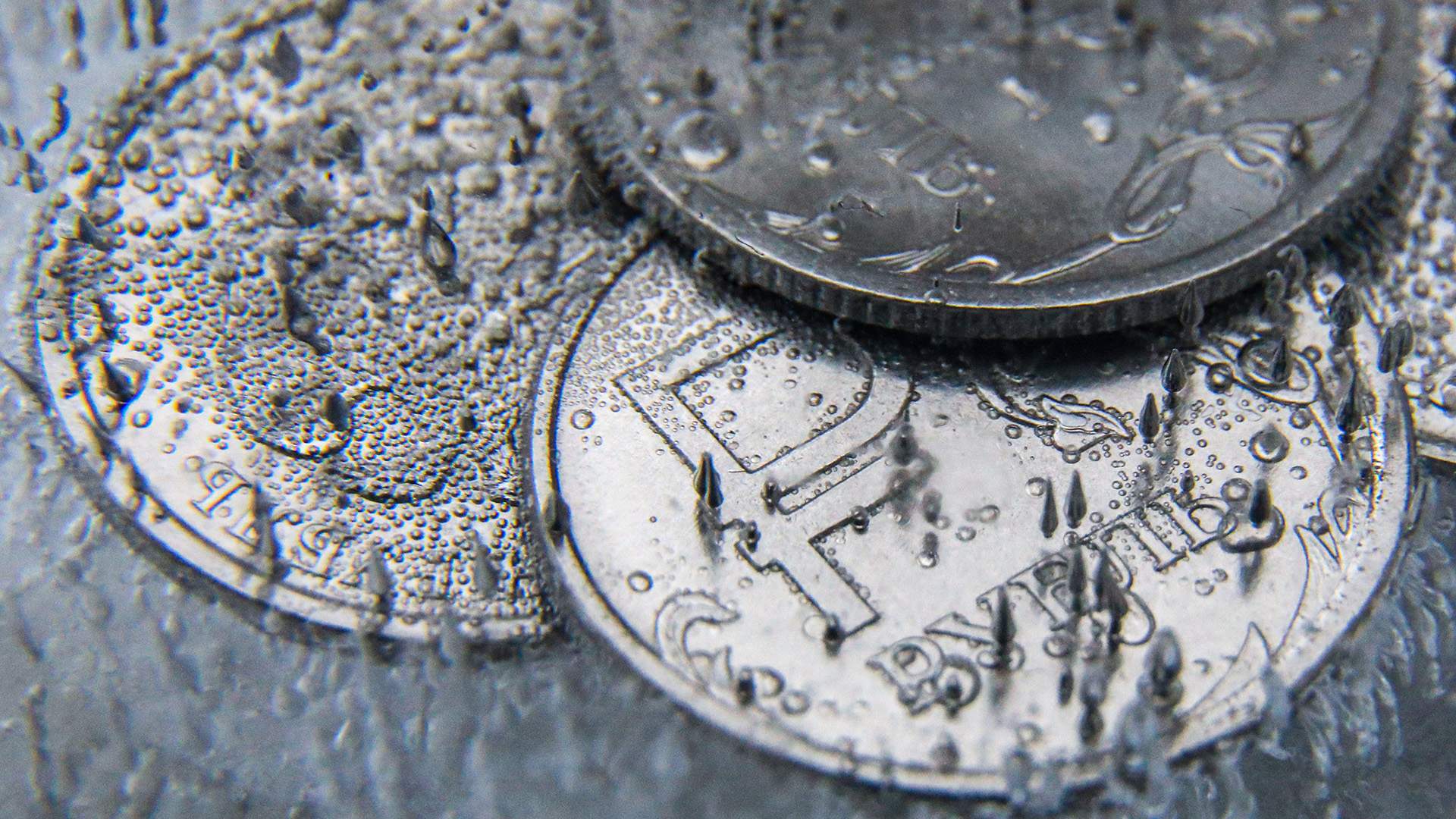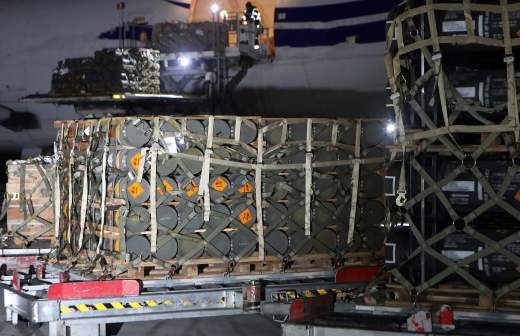An eye for an eye: how the embezzlement of Russian reserves will affect the EU

The EU and the USA are lending Ukraine with the proceeds received from the frozen assets of the Russian Federation. In addition, confiscation is also in the plans. However, the Euroclear depository opposes the plan, emphasizing that it does not want to be "responsible for the actions of politicians". The EU finds itself in a difficult position: the pressure from the U.S. is only growing, in addition, Russia will try to take the money through the courts. Brussels will have to answer, and Washington will wash its hands of it. Details - in the material "Izvestia".
Banal robbery
In late December, the Ukrainian authorities received the first billion dollars from the United States, secured by the proceeds from the frozen in Western countries Russian assets. This was reported in his Telegram-channel by the Prime Minister of the country Denis Shmygal.
According to him, we are talking about the initial tranche within the framework of the loan approved by the US authorities for a total of $20 billion.
The U.S. Finance Ministry approved such a measure in the first half of December. It is expected that the G7 countries will provide Kiev with another $30 billion under a similar scheme.
The Russian Foreign Ministry called the U.S. decision to use the proceeds from frozen Russian assets a banal robbery. "Simply put, the G7 is stealing other people's money, preparing the ground to seize and spend all Russian sovereign reserves held in the West," the ministry said in a statement.
EU faces problems
The EU first used the financial mechanism of transferring profits from frozen Russian assets to help Ukraine in July 2024, allocating €1.5 billion for defense and reconstruction of Ukraine.
This amounts to about 0.5% of the $300 billion - the amount that the Bank of Russia and the Finance Ministry estimated the volume of blocked assets. At the same time, €180 billion of that is in the Belgian central securities depository Euroclear, which holds a significant portion of Russia's reserves.
According to Reuters, the securities of the Russian Central Bank are worth about €190 billion, which means that in three years Euroclear has earned more than €10 billion on their investment . The agency quotes an unnamed senior EU official who estimated that by 2027 Russian assets could bring another €15 to €20 billion in profit.
Two types of such resources of the Russian Federation - state and private - have fallen under the freeze. But it is the former that are the source of income, which the EU plans to use to help Kiev.
Experts fear that this threatens a global financial crisis after the end of the conflict. An official believes that after the end of hostilities, the Bank of Russia will file lawsuits in the courts, and the Russian Federation will take this money through them. Then Euroclear will have a hard time: in fact, it will be emptied.
If the depository runs out of capital, the Central Bank of Belgium will be forced to revoke its license, and this, in turn, could lead to a global financial crisis.
According to Valerie Urben, head of the Belgian settlement and clearing system, "the depositary should not be held responsible if the EU decides to confiscate assets in favor of Ukraine." "We cannot find ourselves in a situation where assets are confiscated and a couple of years later Russia comes knocking on the door demanding the return of its money, which is no longer there," she stressed.
Euroclear depository is one of the largest professional participants of the securities market. It guarantees the safety of the funds entrusted to it, so it will face lawsuits if this condition is violated. Urben talks about the need to "transfer obligations" to EU bodies so that claims are brought against them.
So Euroclear will end up facing both financial and reputational damage, as the predicted outcome will collapse international investors' confidence in the European legal system.
Meanwhile, the US is dodging direct questions about confiscation. Given that most of the frozen Russian assets are in European accounts, the legal and economic risks are much higher for the EU, Washington is not formally responsible.
What experts think
Alexei Krichevsky, a financial expert and author of the Telegram channel "Economism", explained in a conversation with Izvestia that Euroclear, like other European officials, realizes that any action aimed at confiscating Russian assets will plunge the eurozone into a crisis that it may not survive.
- In particular, it concerns the euro and its purchasing power, because parity with the dollar at the confiscation of Russian assets will be a blue dream: the rate will fall by one and a half times, which will destroy the continent's economy to the ground and will launch a new wave of talks and actions aimed at the collapse of the financial system itself, - said the expert.
According to him, the most active supporters of this step are the countries that do not depend on the euro. We are talking about the U.S., Poland, and Ukraine, which trades these assets in words.
- So for the EU, confiscation of reserves is an immediate withdrawal of Chinese, Middle Eastern and Indian investments from the economy. The result will be a plunge into the economic abyss, from which in the current form of the EU will not be able to get out, - summarized the analyst.
Earl Rasmussen, former vice-president of the Eurasian Fund, also adheres to a similar position. In his opinion, the confiscation of profits from Russian assets is illegal from the point of view of international law.
- The EU has tried to create a basis to justify its actions, but all world experts advise not to seize the funds. The transfer of income from Russian assets will have serious global consequences, as a precedent is being set. In many countries, the share of foreign exchange reserves in dollars is already decreasing, distrust towards the dollar and the euro is emerging," the expert explained to Izvestia.
Earl Rasmussen is sure that the confiscation of Russian funds will directly affect the creditworthiness of the EU and its currency. It will even affect the dollar, although to a lesser extent. As a result, such actions will lead to the withdrawal of most countries of their financial reserves from Europe.
Переведено сервисом «Яндекс Переводчик»








